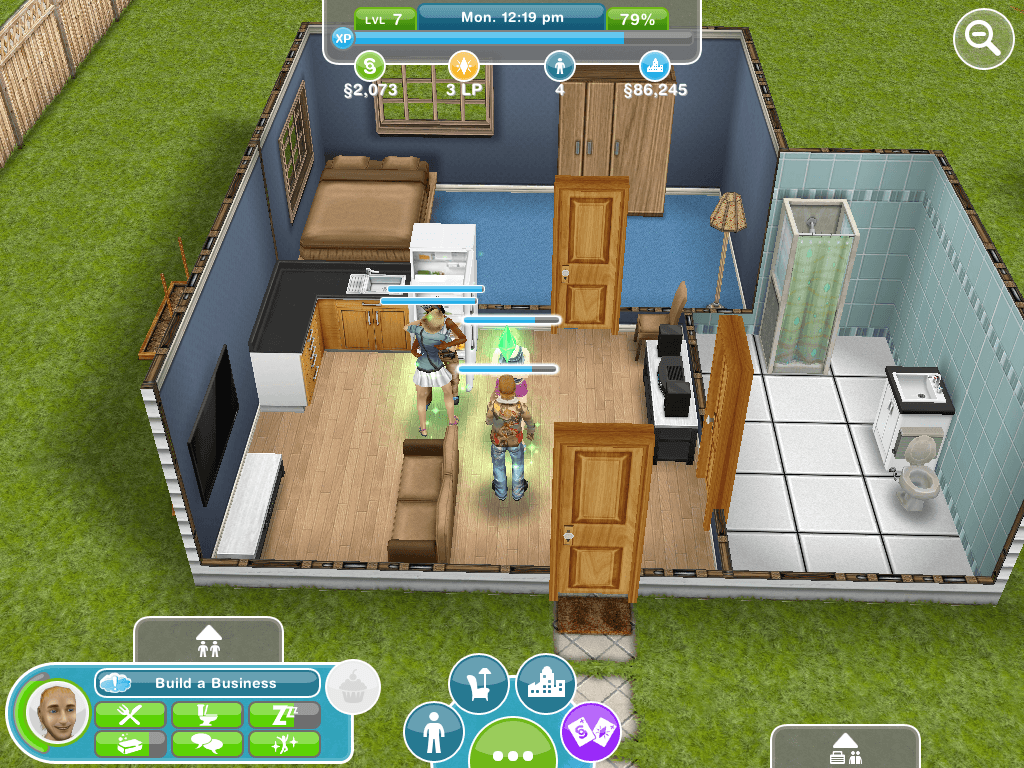

The tremendous popularity of The Sims FreePlay makes it an interesting text to evaluate the influence mobile games have on our identity and behaviour, especially in terms of representation and the way users play an active role in the production process. If you have over 1GB of spare memory on your phone, download the game and see why The Sims FreePlay scores 4.5 out of 5 in the App Store and remains in the top ten of the Free Apps Charts. Released in 2011 and still available on iOS and Android devices, this virtual town and story builder is free to play, but users are able to purchase in-game items with real money to speed up progress or unlock additional features. You can visit and interact with other Sims, play against friends in in multiplayer competitions, and compare your scores and achievements. The game’s community is an important part of its success. Once you have designed your house, there is a store where you can purchase furniture, appliances, and other items to decorate your home and keep your Sim happy.

Players are then tasked to fulfil the needs and desires of their characters by cooking meals, going to work, and building relationships with other Sims. You can determine their personality and customise their appearance, including their clothing, hairstyles, and facial features. The Sims FreePlay is a mobile video game where players create and manage their own virtual characters, known as Sims.


 0 kommentar(er)
0 kommentar(er)
